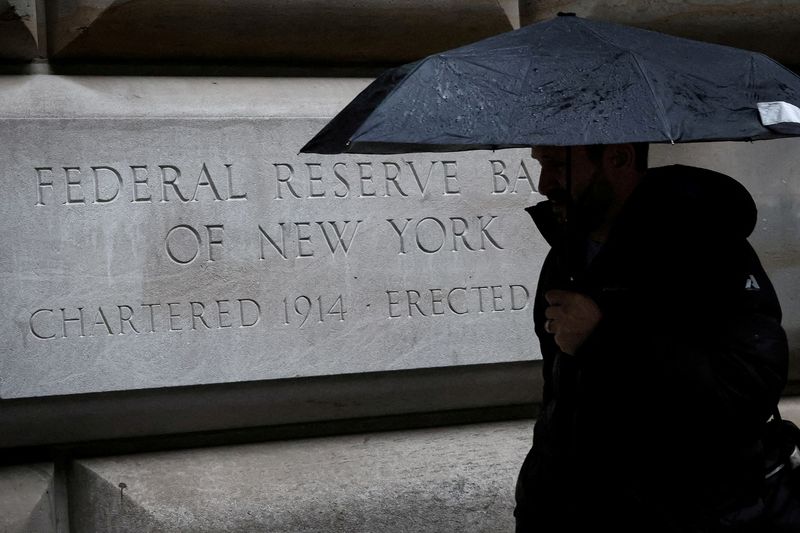By Michael S. Derby
(Reuters) – Lower-income Americans are starting to face nascent signs of financial turbulence now that government support programs tied to the coronavirus pandemic have wound down, but any problems are relatively contained so far.
The Federal Reserve Bank of New York said in a report Thursday that for lower income households, “early delinquencies” on car and credit card loans started to rise in 2022 and are now higher than they were before the pandemic began in the spring of 2020.
“Financial stress appears to have risen” for lower-income households, the report said, while noting any rise in trouble compares to very low levels of financial trouble seen before the pandemic.
The report noted that even higher-income Americans are facing challenges on mortgages, auto loans and credit cards since 2021, with all measures at or just above where they were before the pandemic. But the researchers added, “lower-income areas have seen higher delinquency rates compared to high-income areas.”
The report saw lower-income Americans as caught between a pull back in support and a more challenging economic environment.
“Now that the crisis phase of the pandemic has subsided, low-income households are facing new economic realities: fiscal and debt relief helped to shore up household finances, but inflation continues to eat into purchasing power,” the report said. This is biting particularly strongly on the housing front, where more than half of low-income households rent rather than own.
The report said households that are “rent burdened,” which means spending more than 30% of monthly income on leasing a place to live, was at 57% for low-income households, compared to 44% of households in higher-income areas.
Despite the rise in delinquencies, the report noted that lower-income households in general are on a better footing than before the pandemic, noting the median credit score for these type of borrowers went from 651 in the final three months of 2019 to 670 by the third quarter of last year.
The New York Fed report noted that student loan balances and repayments do not appear to be a big issue, given ongoing efforts to forgive debt coupled with lower levels of education borrowing for lower-income households.
The report’s findings were drawn from data the New York Fed collects as part of tracking credit market issues, as well as other government data on income and geographic distributions. The bank said it defines a lower income household as one in a particular census area that earns 80% of that area’s median income.
(Reporting by Michael S. Derby; Editing by Chizu Nomiyama)
